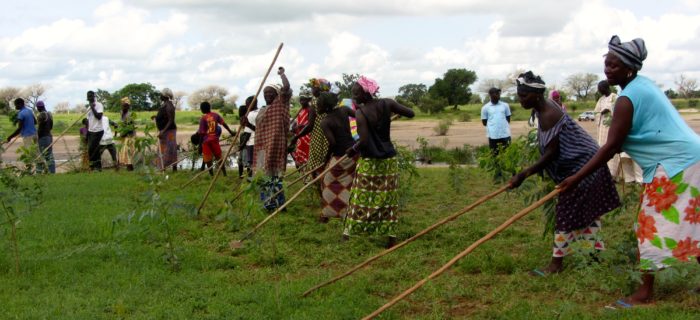 How can we enable the scaling of agroecology from the Bottom up? What is needed for agroecology be advanced, amplified, scaled up and out? In each context, there are enabling and disabling conditions that shape the potential for agroecology to be scaled. This Food First Issue Brief identifies six ‘domains of transformation’ that are essential to consider in agroecology transformations.
How can we enable the scaling of agroecology from the Bottom up? What is needed for agroecology be advanced, amplified, scaled up and out? In each context, there are enabling and disabling conditions that shape the potential for agroecology to be scaled. This Food First Issue Brief identifies six ‘domains of transformation’ that are essential to consider in agroecology transformations.
This brief compliments a range of publications, ideas, videos, briefs and more that we aim to inform agroecology transformations. All of these are available for you to use freely, please feel free to use and share these widely. This backgrounder is based on a recently published article, available here:
Anderson, C. R., Bruil, J., Chappell, M. J., Kiss, C., & Pimbert, M. P. (2019). From Transition to Domains of Transformation: Getting to Sustainable and Just Food Systems through Agroecology. Sustainability, 11(19). doi:10.3390/su11195272
Social movements, food producers, progressive researchers and other actors in civil society have long advocated for agroecology. More recently, agroecology is increasingly recognized by policy makers as an alternative para- digm for food and farming that can address multiple crises in the food system and enable a just transition.
The challenge ahead is to enable the scaling agroecology from “islands of success” to “seas of change”. How can agroecol- ogy be nurtured, grown, massified, scaled up and out and strengthened on-farm, across and between territories, and throughout the food system? We refer to these political, ecological, cultural and economic processes as ‘agro- ecology transformations’.
Agroecology transformations are often messy, chaotic and non-linear. Through an analysis of existing cases and the wider literature on agroecology, we have distilled the aspects, drivers, dimensions and qualities that are critical to have in place in a particular community, territory or country in order for the greater spread and institutional recognition and support for agroecology.
This publication is the first collaboration with former CAWR researcher and now CAWR Honorary Research Fellow, Jahi Chappell who has taken on the role of Executive Director at Food First. We look forward to an ongoing collaboration with Jahi and the team at Food First.
The backgrounder was produced as a collaboration between the Centre for Agroecology, Water and Resilience – CAWR, Food First and Cultivate


